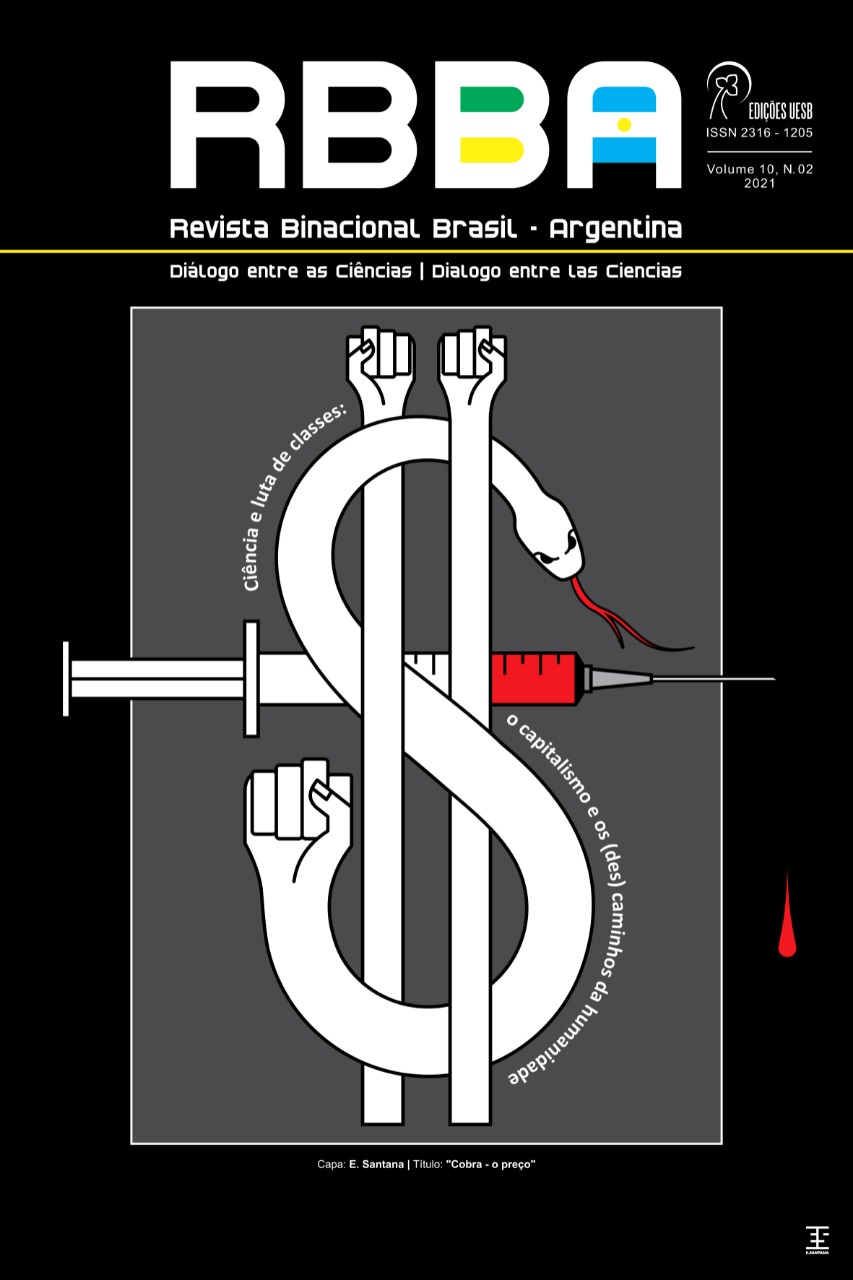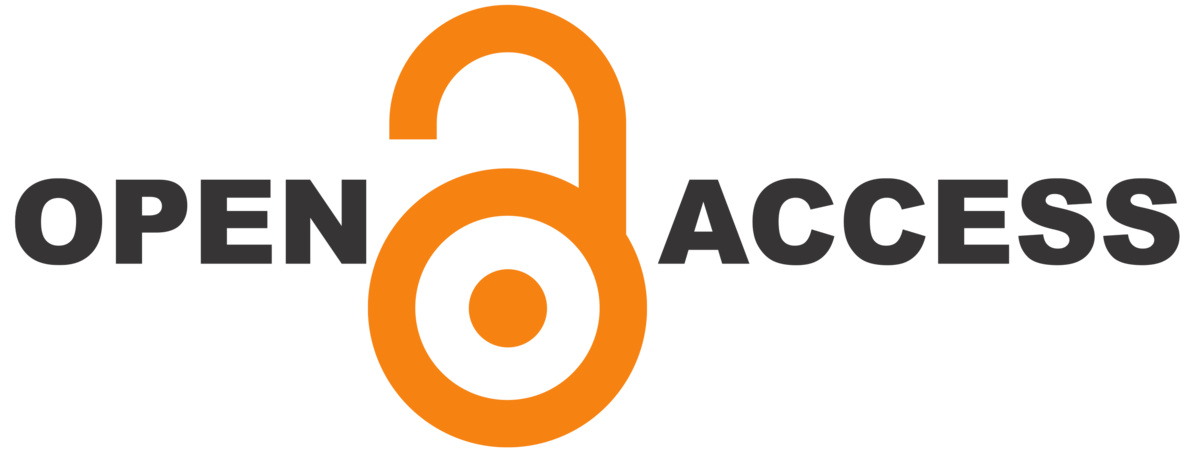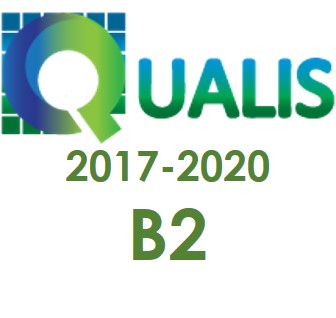A ETNOMATEMÁTICA COMO CIÊNCIA A SERVIÇO DO RESGATE CULTURAL
DOI:
https://doi.org/10.22481/rbba.v10i02.9694Palavras-chave:
Etnomatemática, Educação Matemática, CurrículoResumo
O presente objetiva discorrer e refletir sobre como a Etnomatemática se alia à Educação Matemática Crítica e responde aos anseios trazidos por uma perspectiva crítica e pós-crítica do currículo. Como bases teóricas, se destacam as pesquisas de Ubiratan D’Ambrosio, Olé Skovsmose e Tomaz Tadeu da Silva. O estudo das teorias curriculares nos permite analisar como novas tendências em Educação Matemática surgem a partir de novas demandas sociais e tendem, em sua maioria, questionar e responder a determinado grupo dominante, a partir do reconhecimento e valorização do saber/fazer Matemática de um grupo com vistas na produção de significados para conceitos matemáticos construídos culturalmente por outros grupos. A Etnomatemática, é trabalhada como ciência de resgate do saber/fazer matemático dos diversos grupos culturais identificáveis, favorecendo a descolonização desse campo disciplinar e o desenvolvimento de uma Educação Matemática multicultural. Entrelaçar a Etnomatemática e a Educação Matemática Crítica nos faz perceber como a Educação Matemática é, também, espaço de autoproduções capazes de gerar uma educação significativa, voltada ao respeito às identidades e geração de espaços para vozes antes desprezadas.
Downloads
Referências
D’AMBRÓSIO, Ubiratan. Etnomatemática. São Paulo, SP: Editora Ática, 1990.
EAGLETON, Terry. Depois da teoria – um olhar sobre os estudos culturais e o pós-modernismo. Rio de Janeiro: Civilização Brasileira, 2005.
FIORENTINI, Dario. Alguns modos de ver e conceber o ensino da matemática no Brasil. Zetetiké, Campinas, ano 3, n.4, p. 1-37, 1995.
LOPES, Danielle. Bastos.; MORENO, Flávia Barbeito; OLIVEIRA, Luiz Fernandes de. Etnomatemática: um novo olhar para a sala de aula. In: Lima, Augusto Cesar Gonçalves e; Oliveira, Luiz Fernandes de; Lins, Mônica Regina Ferreira (Orgs.). Diálogos interculturais, currículo e educação: experiências e pesquisas antirracistas com crianças na educação básica. Rio de Janeiro: Quartet: FAPERJ, 2009.
MOREIRA, Antônio Flávio Barbosa (Org.). Currículo: questões atuais. 7ª ed. Campinas, SP: Papirus, 2003.
PACHECO, J. A. Teoria curricular crítica: os dilemas e (contradições) dos educadores críticos. Revista Portuguesa de Educação. Braga, v.14, n.1.p. 49-71. 2001.
PASSOS, C. M. Etnomatemática e Educação Matemática Crítica: Conexões e práticas. Dissertação (Mestrado em Educação) – Faculdade de Educação, Universidade Federal de Minas Gerais, Belo Horizonte, MG, 2008.
PINHEIRO, Geslani Cristina Grzyb. Teoria curricular crítica e pós-crítica: uma perspectiva para a formação inicial de professores para a educação básica, ANALECTA, Guarapuava-PR, v.10, n.2, jul/dez, 2009.
RIBEIRO, Márden de Pádua. Teorias críticas e pós-críticas: pelo encontro em detrimento do radicalismo, Movimento, Rio de Janeiro, ano 3, n.5, 2016, p.284-317.
SACRISTÁN, José Gimeno. O Currículo: uma reflexão sobre a prática. Porto Alegre: Artmed,2000.
SANTOS JUNIOR, Clóvis; THIENGO, Edmar; SOUZA, Maria. Perspectivas para a Educação Matemática: Etnomatemática e Educação Matemática Crítica. In: V EEMOP- Encontro de educação Matemática de Ouro Preto – Ouro Preto, MG, 2013.
SANTOS JUNIOR, Clovis; THIENGO, Edmar; SOUZA, Maria. Entrelaçando teorias: Etnomatemática e Educação Matemática Crítica. In: Souza, Maria Alice Veiga; Sad, Lígia Arantes; Thiengo, Edmar Reis (Org.). Aprendizagens em diferentes temas: uma abordagem introdutória, Vitória, ES: Ifes, 2015, p. 17-45.
SKOVSMOSE, Olé. Educação Crítica: Incerteza, Matemática, Responsabilidade. São Paulo: Cortez, 2007.
SILVA, Tomaz Tadeu da. Documentos de Identidade; uma introdução às teorias do currículo. 3ª ed. Belo Horizonte: Autêntica, 2010.
Downloads
Publicado
Como Citar
Edição
Seção
Licença
Copyright (c) 2021 Revista Binacional Brasil-Argentina: Diálogo entre as ciências

Este trabalho está licenciado sob uma licença Creative Commons Attribution 4.0 International License.












